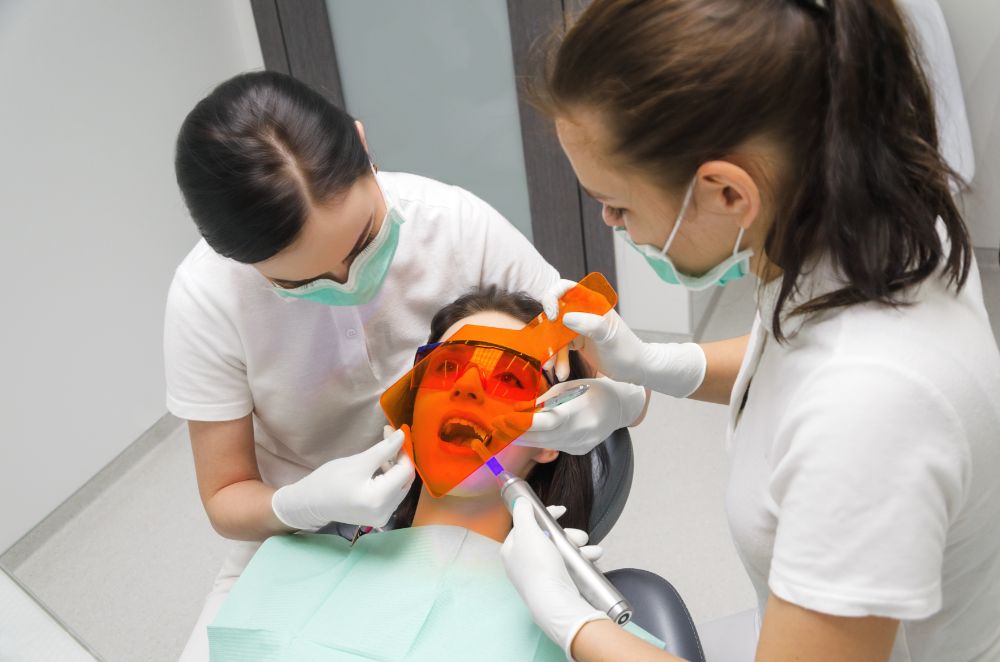A white smile is a beautiful feature that will stand out on any person’s face. When you notice that your teeth are yellowing or discolored, do not hesitate to make an appointment at an office that offers cosmetic dentistry. Here are the best times for whitening your teeth.
Your Teeth Are Very Discolored
The amount of discoloration on your teeth may indicate whether you need professional services. If your teeth are only slightly yellowed, you can treat them with an at-home kit. However, teeth that are very yellow or brown may benefit from a deep whitening service at the dentist.
You Have Sensitive Teeth
If you find whitening your teeth painful or uncomfortable, you will want to visit your dentist for your teeth whitening procedure. Your dentist will use gentle methods to whiten and restore your smile. You can also work with your dental practitioner to find a tooth whitening option that is comfortable for sensitive teeth.
You Have Other Oral Health Problems
Sometimes, tooth discoloration can be caused by more serious oral health problems, such as decay, abscesses, or gum disease. To ensure that another more serious condition has not caused your tooth yellowing, it is a terrific idea to schedule your teeth whitening at a professional office. During your whitening appointment, your dentist can check for other signs of damage to your teeth.
Bacteria
Bacteria form between the heart and the mouth. Bacterial infection risks may occur when a patient goes through any surgical procedure. We underestimate bacterial infection risks at present as we now can access treatment with many antibiotics. About a century ago, the knowledge of bacteria or their capacity to cause infections was not well documented. Most patients died following surgeries as the surgery rooms were not sterilized or disinfected. When an astute doctor observed the post-surgical death rates and conjectured that maintaining a clean surgical room might ease infections, death rates fell with sterilization. Bacterial infections from your teeth or gums house millions of toxic bacteria. Such bacteria may easily flow directly into your bloodstream and then infect the area between your surgically cut bone cartilage or your bone joints. This causes severe bacterial infection inside the surgery operating room.
Oral Bacteria
Bacteria live in many physical environments. Some organisms are beneficial, while others are not beneficial. Bacteria often cause gum disease and cavities in your mouth. Diet also affects mouth bacteria. There are specific forms of foods that we seek to feed on. Sweet and sticky snacks are delectable treats for humans and bacteria in the mouth.
Enamel Might be Damaged with Home Treatment
For tartar removal from home, you must purchase a kit that contains similar tools to those that dentists use to whiten your teeth using metal scrapers. Usually, if you have the tools, you might be able to remove tartar. Still, the tartar is not all that you may take out. Your tooth’s enamel comes beneath tartar, and this may get effortlessly removed by using metal tartar removal scrapers.
Plaque & Periodontal Disease
Plaque damages the gums and your teeth gums, thus causing cavities or gum disease, otherwise termed Periodontal Disease.
Time of Day That Is Best for Whitening Teeth
Many dentists recommend utilizing the whitening trays at night before going to bed. This is because teeth have pores, and when you apply a whitening gel to your teeth, the pores split open. You are providing your teeth time to take in the gel and remineralize upon utilizing the trays.
Professional whitening is done inside a dental office. In-office whiteners are more effective than the other alternatives because they contain more peroxide within the solution.

